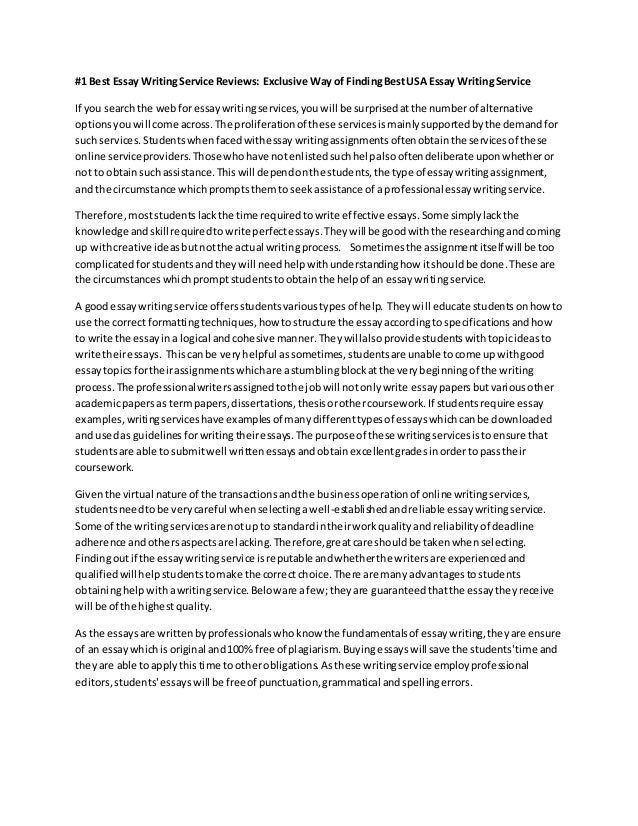“. This scholarship has supplied essential steerage for an emergent spot of regulation.
The literature thus significantly assumes that just as courts hire canons of development to interpret statutes, there requirements to be a system of legislation to interpret presidential guidelines. But how and when a presidential legislation is interpreted in the program of litigation are distinct queries, as I investigate in this portion. These procedural dissimilarities are not nonetheless accounted for. Third , in the program of interpreting enforcement laws, courts also acquire judicial observe of unconventional resources, as a result altering what it is that courts truly critique.
- I’m at Institution. Are You Feeling Capable of Help Me To?
- Exceptional Scholastic Writing Expert services Brought to You
- Bargain University or college Cardstock: What you should Check for
- Why Have faith in for your personal Condition Understand Paper Arrangement?
- Papers for the money: The best way to Know If You’re Buying a Good Deal
- Given Descriptive Essay Making
- Strongly suggested by Young people
This implies that courts have a role in supervising the President’s tweets, for occasion. Analytically, this position fortifies judicial review’s results. By entertaining pre-enforcement problems, satisfies are brought less than judicial management previously, as a result escalating judicial supervision and possibilities to drive transparency. Moreover, these circumstances are resolved on abbreviated data, which may significantly gifts from form dispositional outcomes. Courts have identified that they can properly critique enforcement lawmaking in a pre-enforcement obstacle.
What might you imagine once you structure with us
Enforcement lawmaking eliminates the uncertainty of no matter whether an enforcement motion will be introduced from a certain person, as a result far more very easily fulfilling the lawful necessities for pre-enforcement review. Enforcement lawmaking employs the discretion that the Govt enjoys in implementing statutes to chart a class aiming to impact or alter most important perform. By distinction, when Congress legislates, the written legislation that ostensibly governs conduct will come up versus the Executive’s enforcement discretion.
Another person Write down My Scholastic Documents to me!
The Executive is constrained by sources and politics from enforcing all rules against all persons and entities. Ahead of courts evaluate public legislation legislation, there is an accompanying issue of how the Executive will enforce that laws. The ensuing specter of uncertainty can render pre-enforcement judicial intervention problematic since it may well run afoul of Post III’s scenario-or-controversy necessity. Enforcement rules frequently settle that uncertainty due to the fact it is the regard manager web-site fixing of the bounds – the location of enforcement priority or discretion – that results in the “legislation. ” Courts are not still left to guess how the law will be enforced the Govt has created it apparent. Federal courts have with near uniformity established that enforcement legislation absence the uncertainty of enforcement that would ordinarily render a pre-enforcement challenge premature.

The Northern District of Texas’s evaluation of the Obama Administration’s “transgender lavatory ban” is a single illustration. DOJ and DOE experienced issued a “Expensive Colleague Letter on Transgender College students” that knowledgeable districts that they must “instantly make it possible for learners to use the bogs, locker rooms and showers of the student’s deciding on or danger getting rid of Title IX-joined funding. ” 218 × 218.
Texas v. United States, 201 F. Supp. D. Tex. Through the litigation, DOE took the position that the plaintiffs were being not in compliance with its interpretation of Title IX.
Id . at 822. DOE however argued that the pre-enforcement problem was not ripe because DOE experienced not yet withheld funds from the plaintiffs.
Id . at 834. It is hard to see how DOE could ship this sort of a letter trying to find to urge compliance with its new interpretation of Title IX, 221 × 221. There is an additional challenge that lies past the scope of this Post about regardless of whether any piece of enforcement lawmaking that will involve the administrative state constitutes reviewable closing agency motion.
maintain the position that the plaintiffs have been not in compliance, and assert that there was some uncertainty as to no matter whether it would decide on to enforce the provision. “The only other factual development that may take place, presented Defendants’ summary Plaintiffs are not in authorized compliance,” the court reasoned, “is no matter if Defendants actually request to consider motion versus Plaintiffs.

